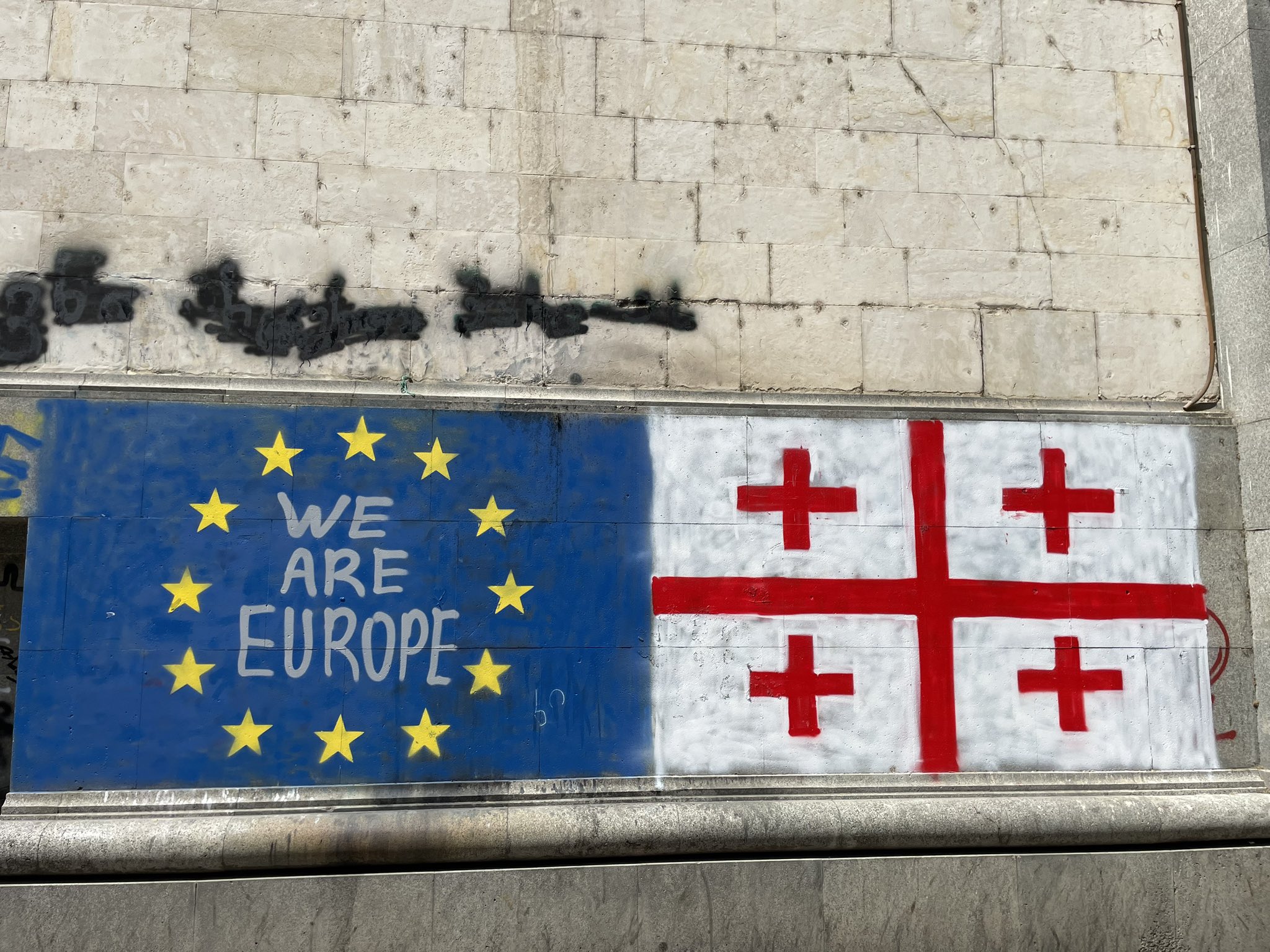The moral victory of Georgians against ‘Russian law’
Despite the Georgian Dream's show of strength with the final approval, the demonstrators had a chance to show the ‘European face’ of Tbilisi. Many hope that the measure might not be implemented, to avoid sanctions from Washington and Brussels. Awaiting the October elections.
Tbilisi (AsiaNews) - Young activists and students opposed to the law on the ‘transparency of foreign influences’, definitively approved by the Tbilisi parliament over President Salome Zurabišvili's veto, have been gathering around the palace since early morning to express their protest; but instead of the tones of civil war, an air of popular victory could be felt. The demonstrators were given a chance to show the ‘European face’ of Georgia, and made it clear to the pro-Russian ruling caste that they do not intend to give up.
The deputies of the Georgian Dream, thugs of the Putin oligarch Bidzina Ivanišvili, kept repeating that their task is to prevent the destabilisation of the country and to protect Georgia's sovereignty, avoiding getting involved in the war against Russia.
For their part, the young people who took to the streets shouted ‘We are Europe!’, showing that they were not afraid of repression by the police, as promised by the head of the special services of the Ministry of the Interior, Zviad Kharazišvili, who said on television that ‘we do not beat young men, we beat almost men’, alluding to the untraditional appearance of the young men who took to the streets, equated with ‘LGBT propagandists’. And just in case, he also promised to beat up the leader of the opposition National Movement party, Levan Khabeišvili.
After these statements, Kharazišvili walked towards the parliament, and Droa party leader Elene Khoštarija stood in front of his car shouting at him ‘Khareba, you are just a coward!’. He went on to explain to journalists that ‘here we are not playing the game of who shows the muscles, but we are talking about the traitors who have no real power in the country, because Russia does not rule in Georgia, the Georgian people are united and strong, we have been taking to the streets together for 50 days to make this clear to everyone’. Kharazišvili took refuge inside the building, while his aides took pictures of all the people surrounding the car.
As one of the leaders of the protests, Georgij Dumbadze, explained, "they take pictures of us so that they can identify us and pick us up in front of the house, but here no one is afraid and no one is hiding... For us, this is a historic battle, and the next elections in October will be a referendum on the future of Georgia’. Another personality of the street rallies, the young pianist Georgij Gigašvili, confessed that he feared the policemen were going to break his fingers to end his career. But in his opinion, ‘today we are the real winners, because we haven't felt this unity of the people for a long time... we will see what happens in the future, but today we feel superior to them, we know how to protest peacefully and no one has attacked the policemen, there is a light that illuminates our path."
All over the media and social networks there are pictures of young people sitting on the ground, reading books together and studying, with elders bringing them food. For the authorities, "it's just drama’, accusing the youth of paralysing the country instead of going to school. One of them, Mariam, told Radio Svoboda that ‘for 12 years the Georgian Dream has been sowing nihilism; for a while we let it go on, believing that we really are people without self-esteem, but today we have won above all against ourselves, we have defeated despair and depression."
Even after the presidential veto is overridden, according to the hopes of many, the ‘Russian law’ might not be implemented, to avoid sanctions and restrictions from Washington and Brussels, which have already been announced by several representatives and prompted precisely by the street protests. The protest demonstrations could also fade away, pending the election, but some observers fear that they could continue until October without a break, with unpredictable consequences for Georgian society, and not only.







.png)










